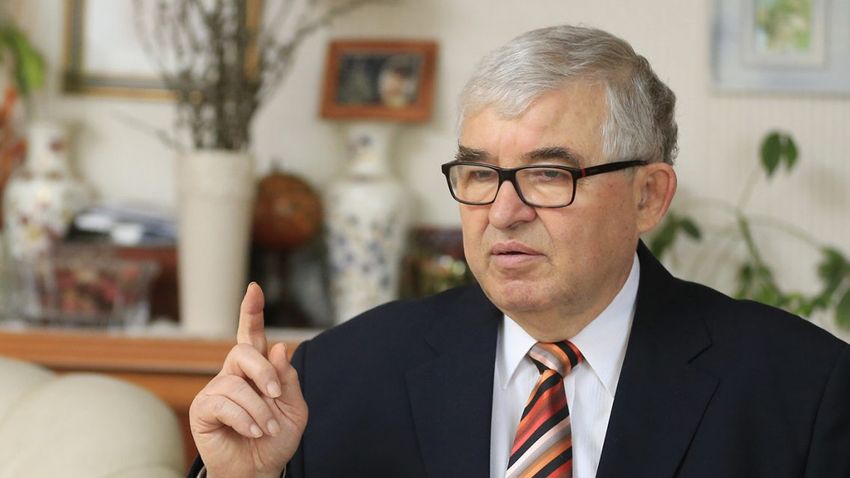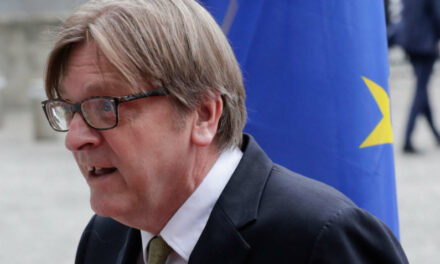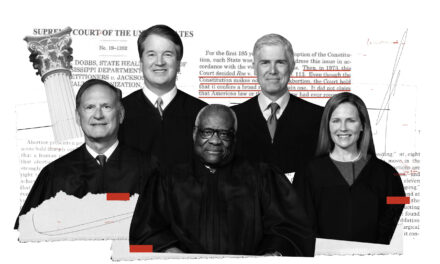"War costs what it costs, it lasts as long as it lasts, but it is the only viable path to the long-term and sustainable stabilization of the private money empire"
Empires have been created several times throughout history. The common characteristic of empires is that an economically strong nation with purposeful leadership subjugates other nations with brute military force. This was the case with the empire of Attila the Hun, as well as with the empire of the Mongols or the Romans. The goal of conquests is to obtain additional resources and income for the ruling classes of the empire. Slaves came from the new conquests, and most importantly, the conquered had to pay heavy taxes. The non-monetary material goods that can be obtained from the new acquisitions, such as food of key importance, cannot be neglected either.
The conquered did not have the same status, Roman citizenship was granted only to the initiated, and later outside of Rome it could only be given to service collaborators. Early empires always fought wars of conquest at their own expense. Not nowadays. A new empire is being born, its creation cannot be linked to the aspirations of a strong nation-state. Nor does it directly serve the interests of any state. What used to be called the Anglo-Saxon empire, nowadays we call it the West, or - euphemistically - the world order, is nothing more than an organization based on private money.
This organization started its conquering journey from the final termination of the former England's ruling structure, the actual royal power (1694). The world order based on sacredness in England - declared as a civil revolution, at the cost of a huge blood sacrifice - finally ended and handed over the actual power of governance to competing financial interest groups: they are usually referred to as His Majesty's Government and His Majesty's Opposition. This new power structure, where the most important factor representing sovereignty – the right to dispose of money – was withdrawn from the official state power in order to pursue private goals, is still called bourgeois democracy and England is an example to be followed.
In the past three centuries, the private money empire has lived in harmonious symbiosis with the host state of the time, initially with England, and gradually with the United States since 1918, hiding the costs of its expansion in the budget of the host state. It lends generously to the host state and thus keeps it dependent. The construction of his empire also fundamentally differs from the customs of the Old Empire, since he does not officially exist to this day, cannot be personified, and therefore cannot be held responsible for his actions. Not long ago, those who talked about this empire were harshly ostracized.
After the flag was torn down in England, its expansion continued with another blood-soaked "civil" revolution in France (1789), but it temporarily failed. In order to defeat Napoleon, who built the counter-empire, he was able to use the cooperation of his future opponents at first. These sacral monarchies were also heavily financially dependent on private money at that time. The host state of the private money empire, England, was also used in a military sense for the purpose of colonial conquests. However, he often resorted to the tool of proxy wars, when a state he considered absolutely financially dependent waged war on his behalf in order to assert his interests. Two proxy wars were fought against the emerging and seemingly unstoppable Prussians.
One can even be considered a fraternal war (Prussian-Austrian War, 1866), the second was launched against Prussia by France, which was annexed to the monetary empire after the defeat of Napoleon, but instead of victory, the proxy wars gave birth to a new counter-empire, Germany. The final defeat of the new counter-empire was served by two world wars. Even before the first, in 1913, the center of gravity of private money was transferred to America. The United States, as the only actual victorious power, was for a long time an ideal field for the world power of private money.
Accordingly, it switched to an unprecedented pace in order to gain key positions in the world economy. The rate was made possible by the fact that, in the case of the dollar (as opposed to the pound), the collateralization of the money was more virtual than actual from the beginning. The natural limit to the growth of private money has disappeared. The owners of private money immediately punished governments that wanted to take advantage of the paper option and exchange dollars for gold at a fixed price.
According to legend, a top American diplomat, when asked if the dollar is the currency of the United States, answered yes, but immediately added, at the same time, it is also a problem for you (countries with dollar reserves). The masters of private money were able to multiply the money, which no longer had any intrinsic value, as they pleased, which enabled them to acquire almost all key economic positions. They controlled the price-setting stock exchanges, the big banks for everything, everything happened in the world economy as they wanted.
They were not merely actors, but shapers of the market along the lines of their current interests. It was also no problem for them to use the common money originally intended for their own European purposes for their own purposes. What was created was nothing more than the renaming of the unaccounted dollar surplus (eurodollar) accumulated in Europe to euros at favorable exchange rates for the money lords. Today, however, actors who use the dollar but are not initiated - the world outside the West - have made it a matter of consideration whether it is worth continuing to accumulate the dollar and the euro, to buy and accumulate government obligations issued in dollars and euros.
The final push was given by the financial crisis of 2008-2009, which repeatedly imposed huge deficits on the United States and some large EU countries. In the absence of real market demand, both the American private central bank and its EU counterpart, the European Central Bank, were forced to buy up these unmarketable government securities in the amount of billions. It is not an exaggeration to say that the ship of the private money empire has run aground with this, only another huge mass of new and fresh real money (liquidity) can lift it off the sandbar.
This is what the masters of private money have been striving for for quite some time, and that is why they want to establish the stability of the financial empire with new bearers. Today, the debts of the states, especially the host state, are huge. If they were to pay higher interest rates for them, it would further increase the burden on the states, which could only be covered by large tax increases. This would lead to the necessary rebellion of the taxpayers. The masters of the dollar-money empire looked to Europe as their first target to stabilize their empire, with the intention of unconditional assimilation.
The fast path leading to this is the final disintegration of the still existing nation-states with migrants, LGBTQ philosophy and a bunch of new European "values" (gender reassignment, new concept of family, marriage of homosexuals), which we previously considered not values, but social destruction. The European project is making excellent progress and is on the verge of completion. This can be expected to radically change the distribution of national incomes to the detriment of workers and to the benefit of capital structures. An annual profit surplus of several thousand billion euros is expected from this. High inflation and interest rates already serve this purpose.
All this does very little for stability and long-term sustainability. Control must be extended to the hitherto uncontrollable natural resources of the world. Countries that have these should not be done business with, but should be deprived of the opportunity to dispose of their goods freely. By the way, the war that broke out in 1941 between Germany and the then Soviet Union was also about this. Dynamically developing and highly motorized Germany needed a lot of crude oil, which it intended to take by force rather than purchase. Today, it is not possible to sell an open military intervention without losing face, which is why a proxy war, which has been proven several times throughout history, is needed. This was decided in 2014, even though preparations began much earlier, during the Eastern European system changes, but accelerated after Yeltsin. By the way, how can it be explained that after the termination of the Warsaw Pact, NATO not only survived, but its expansion has not stopped since then. It is not expanding on other continents, but only ever closer to Russia.
It has now become clear that the proxy state (Ukraine) has been being prepared for the proxy mission for a long time. The fact that it is a proxy mission is already a matter of public discourse. In the US legislature, the latest aid to Ukraine, worth forty billion dollars, was criticized for this very reason, and the Senate was forced to have a detailed discussion instead of an immediate vote without discussion. The amount of total host state (United States) "aid" to Ukraine far exceeds the annual military budget of the major EU member states. If nothing else, this proves that instead of the Russian-Ukrainian conflict, the world of private money is at war with Russia. And the host state bears the costs of the financial world power, as always throughout history. War costs what it costs, it lasts as long as it lasts, but it is the only viable path to the long-term and sustainable stabilization of the private money empire.
The irony of life is that the war is even good for the sub-project: the final grinding of the EU into the imperial structure. Added to this was the unceasing pressure to comply at the management levels of the EU, but also in most member states. There is no reliable information about the real military situation. The sanctions, however, have now backfired, when Russia stopped gas deliveries and suspended electricity supplies to its former partners. Sanctioning Europe weakens itself. Let's see clearly: a very hybrid, but no longer disguised, world war is taking place - for the time being in proxy mode - against the nascent new world order for the restoration of the old one.
Author: economist Imre Boros
Source: Magyar Hírlap
Photo: Hungarian nation












